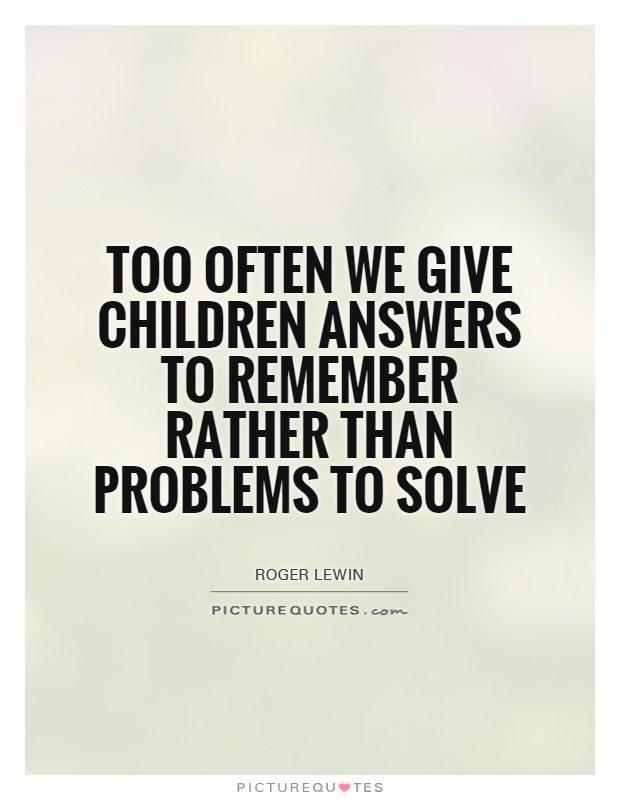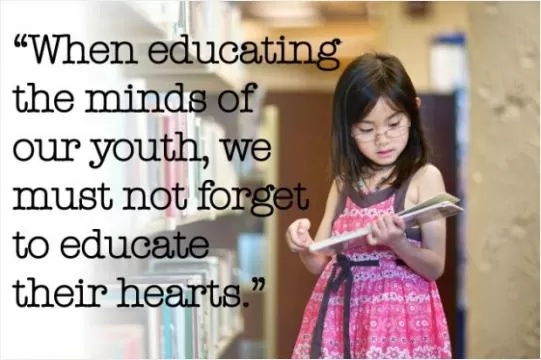Too often we give children answers to remember rather than problems to solve

Too often we give children answers to remember rather than problems to solve
In the realm of education, the quote "Too often we give children answers to remember rather than problems to solve" by Roger Lewin holds significant weight. This quote highlights a common flaw in traditional teaching methods, where students are often expected to memorize facts and regurgitate information rather than engage in critical thinking and problem-solving.When children are simply given answers to remember, they are not being challenged to think for themselves or develop their problem-solving skills. This can lead to a lack of creativity, independence, and critical thinking abilities in students. Instead of fostering a love for learning and exploration, this approach can result in students feeling disengaged and uninterested in their education.
On the other hand, when children are presented with problems to solve, they are encouraged to think critically, analyze information, and come up with their own solutions. This approach not only helps students develop important skills such as problem-solving, critical thinking, and creativity, but also fosters a sense of independence and self-confidence in their abilities.
In today's rapidly changing world, where information is readily available at our fingertips, it is more important than ever to teach children how to think critically and solve problems. The ability to adapt to new situations, think creatively, and find innovative solutions is crucial for success in the 21st century.
Educators must shift their focus from simply imparting knowledge to providing students with opportunities to engage in meaningful problem-solving activities. By encouraging students to ask questions, explore different perspectives, and think outside the box, educators can help cultivate a generation of lifelong learners who are equipped to tackle the challenges of the future.












 Friendship Quotes
Friendship Quotes Love Quotes
Love Quotes Life Quotes
Life Quotes Funny Quotes
Funny Quotes Motivational Quotes
Motivational Quotes Inspirational Quotes
Inspirational Quotes